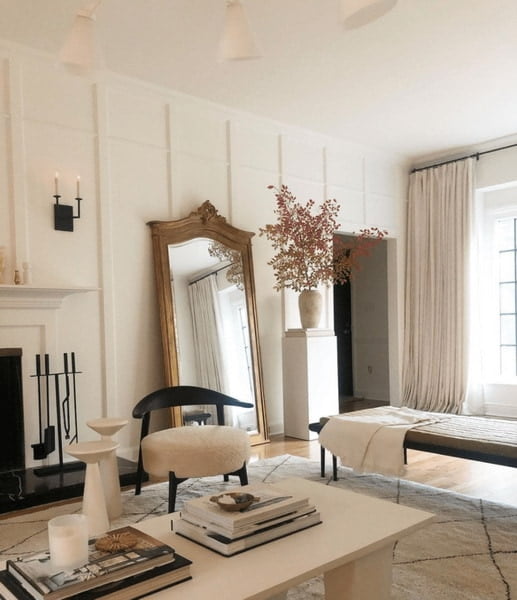Navigating The Marketplace: Where To Sell Your Home Decor In 2023
Navigating the Marketplace: Where to Sell Your Home Decor in 2023
Related Articles: Navigating the Marketplace: Where to Sell Your Home Decor in 2023
Introduction
With enthusiasm, let’s navigate through the intriguing topic related to Navigating the Marketplace: Where to Sell Your Home Decor in 2023. Let’s weave interesting information and offer fresh perspectives to the readers.
Table of Content
Navigating the Marketplace: Where to Sell Your Home Decor in 2023

The home decor industry is a vibrant and dynamic market, offering a plethora of opportunities for entrepreneurs and creatives. Whether you’re a seasoned artisan or a budding designer, selling your home decor creations requires strategic planning and a thorough understanding of the available platforms. This article provides a comprehensive overview of the best places to sell home decor in 2023, highlighting their unique features, advantages, and considerations.
Online Marketplaces: The Digital Frontier
Online marketplaces have revolutionized the way we buy and sell, offering unparalleled reach and convenience. Here are some of the leading platforms for home decor sellers:
-
Etsy: A global marketplace known for its handcrafted and vintage items, Etsy is a haven for unique and artisanal home decor. Its focus on handcrafted goods attracts a discerning customer base seeking one-of-a-kind pieces.
- Advantages: Large and established community, strong brand recognition, built-in customer base, focus on handcrafted items, SEO tools for better visibility.
- Considerations: High competition, commission fees, marketing costs, potential for customer returns.
-
Amazon Handmade: A dedicated section within Amazon, Amazon Handmade allows artisans to showcase their handcrafted goods, including home decor. It offers access to Amazon’s vast customer base and robust logistics infrastructure.
- Advantages: Access to Amazon’s vast customer base, established logistics network, competitive pricing, potential for higher sales volume.
- Considerations: Stringent quality control, competition from other sellers, potential for price wars, limited brand building opportunities.
-
Shopify: A powerful e-commerce platform that allows businesses to build their own online stores. Shopify offers complete control over branding, design, and customer experience.
- Advantages: Full control over branding and design, customizable features, advanced marketing tools, direct customer relationships.
- Considerations: Requires technical expertise, website development costs, marketing and promotion efforts, managing customer service and fulfillment.
-
Facebook Marketplace: A free platform for buying and selling locally, Facebook Marketplace offers a convenient way to reach local customers.
- Advantages: Free to use, local reach, potential for quick sales, minimal fees.
- Considerations: Limited reach beyond local area, potential for scams, lack of customer protection, limited marketing tools.
-
Instagram: A visual platform primarily focused on sharing photos and videos, Instagram has become a powerful tool for showcasing home decor. Businesses can use Instagram’s features to build brand awareness and engage with customers.
- Advantages: Visual appeal, strong community engagement, direct customer interaction, potential for brand building.
- Considerations: Requires consistent content creation, marketing efforts, potential for algorithm changes, limited sales functionality.
Brick-and-Mortar Options: The Physical Presence
While online marketplaces offer immense reach, physical retail spaces offer a unique opportunity for customer interaction and brand experience.
-
Consignment Shops: Consignment shops provide a low-risk entry point for selling home decor. They allow sellers to showcase their pieces while minimizing upfront costs and inventory risks.
- Advantages: Minimal upfront costs, potential for quick sales, limited inventory risk, exposure to new customers.
- Considerations: Commission fees, limited control over pricing and display, dependence on shop’s reputation and customer base.
-
Pop-Up Shops: Pop-up shops offer a temporary retail space for showcasing home decor. They provide a flexible and cost-effective way to test the market and build brand visibility.
- Advantages: Flexibility, lower rent costs, limited commitment, opportunity to test the market.
- Considerations: Temporary nature, logistical challenges, marketing and promotion efforts, limited customer base.
-
Craft Fairs and Markets: Craft fairs and markets provide a platform for showcasing handcrafted goods, including home decor. They offer direct interaction with customers and a chance to build brand awareness.
- Advantages: Direct customer interaction, potential for immediate sales, brand building opportunities, networking with other artisans.
- Considerations: Competition from other sellers, limited reach, potential for weather-related challenges, setup and teardown costs.
Specialized Platforms: Niche Markets
For sellers with specific home decor styles or target audiences, specialized platforms offer targeted reach and a strong community.
-
Chairish: A platform for selling high-end vintage and antique furniture and home decor, Chairish attracts a discerning customer base seeking unique and timeless pieces.
- Advantages: Focus on high-end items, curated marketplace, strong customer base, potential for higher profit margins.
- Considerations: High commission fees, stringent quality control, limited reach beyond niche market.
-
One Kings Lane: A platform for selling curated home decor and furniture, One Kings Lane offers a refined and stylish shopping experience.
- Advantages: Focus on curated design, strong brand reputation, established customer base, potential for higher sales volume.
- Considerations: High commission fees, competitive marketplace, limited control over pricing and display.
-
Society6: A platform for selling art and design prints, Society6 allows artists to create and sell home decor products like tapestries, throw pillows, and shower curtains.
- Advantages: Focus on art and design, print-on-demand model, automated production and fulfillment, potential for global reach.
- Considerations: Limited control over pricing, competition from other artists, reliance on platform’s marketing and promotion efforts.
Choosing the Right Platform: A Strategic Approach
Selecting the right platform for selling home decor is crucial for success. Consider the following factors:
- Target Audience: Identify your ideal customer and their preferred shopping habits.
- Product Type: Consider the type of home decor you sell and its suitability for different platforms.
- Pricing Strategy: Determine your pricing model and ensure it aligns with the platform’s commission fees.
- Marketing and Promotion: Assess the platform’s marketing tools and your budget for promoting your products.
- Customer Service: Evaluate the platform’s customer service support and its impact on your brand reputation.
FAQs: Navigating the Marketplace
Q: What are the typical commission fees for online marketplaces?
A: Commission fees vary widely depending on the platform. Etsy charges a 5% transaction fee and a 30-cent listing fee. Amazon Handmade charges a 15% referral fee and a per-item closing fee. Shopify charges a monthly subscription fee and transaction fees.
Q: How do I promote my home decor on online marketplaces?
A: Effective marketing strategies include optimizing product listings with relevant keywords, utilizing platform-specific tools, running targeted ads, engaging with customers on social media, and offering promotions and discounts.
Q: What are the best tips for taking high-quality product photos?
A: Use natural lighting, a plain background, and a high-quality camera or smartphone. Ensure clear focus, accurate colors, and good composition.
Q: How do I handle customer returns and refunds?
A: Establish clear return policies and ensure they are easily accessible to customers. Process returns promptly and professionally, while adhering to platform guidelines.
Q: What are the benefits of selling home decor locally?
A: Local markets offer direct customer interaction, potential for building a loyal customer base, and a sense of community.
Conclusion: Embracing the Marketplace
The home decor market is a dynamic and ever-evolving landscape, offering a diverse range of opportunities for sellers. By carefully evaluating the available platforms, understanding their unique features, and implementing effective marketing strategies, sellers can effectively reach their target audience and achieve success in this exciting industry.








Closure
Thus, we hope this article has provided valuable insights into Navigating the Marketplace: Where to Sell Your Home Decor in 2023. We thank you for taking the time to read this article. See you in our next article!
You may also like
Recent Posts
- Navigating The World Of Home Decor Software: A Comprehensive Guide
- The Power Of Visual Transformation: A Deep Dive Into Before And After Images
- The Art Of The Vase: Elevating Home Decor With Timeless Elegance
- Reclaiming Rustic Charm: The Enduring Appeal Of Barn Wood Home Decor
- Elevating Your Home: A Guide To Selecting The Perfect Paintings For Decor
- Reimagining The View: A New Era Of Interior Design
- Arcus Home Decor Inc
- Moradabad: A Legacy Of Artistic Craftsmanship In Home Decor
Leave a Reply